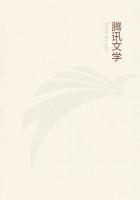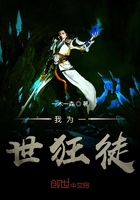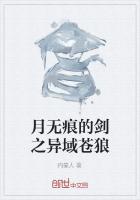To consider Persius yet more closely: he rather insulted over vice and folly than exposed them like Juvenal and Horace; and as chaste and modest as he is esteemed, it cannot be denied but that in some places he is broad and fulsome, as the latter verses of the fourth satire and of the sixth sufficiently witness. And it is to be believed that he who commits the same crime often and without necessity cannot but do it with some kind of pleasure.
To come to a conclusion: he is manifestly below Horace because he borrows most of his greatest beauties from him; and Casaubon is so far from denying this that he has written a treatise purposely concerning it, wherein he shows a multitude of his translations from Horace, and his imitations of him, for the credit of his author, which he calls "Imitatio Horatiana."
To these defects (which I casually observed while I was translating this author) Scaliger has added others; he calls him in plain terms a silly writer and a trifler, full of ostentation of his learning, and, after all, unworthy to come into competition with Juvenal and Horace.
After such terrible accusations, it is time to hear what his patron Casaubon can allege in his defence. Instead of answering, he excuses for the most part; and when he cannot, accuses others of the same crimes. He deals with Scaliger as a modest scholar with a master. He compliments him with so much reverence that one would swear he feared him as much at least as he respected him. Scaliger will not allow Persius to have any wit; Casaubon interprets this in the mildest sense, and confesses his author was not good at turning things into a pleasant ridicule, or, in other words, that he was not a laughable writer. That he was ineptus, indeed, but that was non aptissimus ad jocandum; but that he was ostentatious of his learning, that by Scaliger's good favour he denies. Persius showed his learning, but was no boaster of it; he did ostendere, but not ostentare; and so, he says, did Scaliger (where, methinks, Casaubon turns it handsomely upon that supercilious critic, and silently insinuates that he himself was sufficiently vain-glorious and a boaster of his own knowledge). All the writings of this venerable censor, continues Casaubon, which are [Greek text which cannot be reproduced] (more golden than gold itself), are everywhere smelling of that thyme which, like a bee, he has gathered from ancient authors; but far be ostentation and vain-glory from a gentleman so well born and so nobly educated as Scaliger. But, says Scaliger, he is so obscure that he has got himself the name of Scotinus--a dark writer. "Now," says Casaubon, "it is a wonder to me that anything could be obscure to the divine wit of Scaliger, from which nothing could be hidden." This is, indeed, a strong compliment, but no defence; and Casaubon, who could not but be sensible of his author's blind side, thinks it time to abandon a post that was untenable. He acknowledges that Persius is obscure in some places; but so is Plato, so is Thucydides; so are Pindar, Theocritus, and Aristophanes amongst the Greek poets; and even Horace and Juvenal, he might have added, amongst the Romans. The truth is, Persius is not sometimes, but generally obscure; and therefore Casaubon at last is forced to excuse him by alleging that it was se defendendo, for fear of Nero, and that he was commanded to write so cloudily by Cornutus, in virtue of holy obedience to his master. I cannot help my own opinion; I think Cornutus needed not to have read many lectures to him on that subject. Persius was an apt scholar, and when he was bidden to be obscure in some places where his life and safety were in question, took the same counsel for all his book, and never afterwards wrote ten lines together clearly. Casaubon, being upon this chapter, has not failed, we may be sure, of ****** a compliment to his own dear comment. "If Persius," says he, "be in himself obscure, yet my interpretation has made him intelligible." There is no question but he deserves that praise which he has given to himself; but the nature of the thing, as Lucretius says, will not admit of a perfect explanation. Besides many examples which I could urge, the very last verse of his last satire (upon which he particularly values himself in his preface) is not yet sufficiently explicated. It is true, Holyday has endeavoured to justify his construction; but Stelluti is against it: and, for my part, I can have but a very dark notion of it. As for the chastity of his thoughts, Casaubon denies not but that one particular passage in the fourth satire (At, si unctus cesses, &c.) is not only the most obscure, but the most obscene, of all his works. I understood it, but for that reason turned it over. In defence of his boisterous metaphors he quotes Longinus, who accounts them as instruments of the sublime, fit to move and stir up the affections, particularly in narration; to which it may be replied that where the trope is far-fetched and hard, it is fit for nothing but to puzzle the understanding, and may be reckoned amongst those things of Demosthenes which AEschines called [Greek text which cannot be reproduced] not [Greek text which cannot be reproduced]--that is, prodigies, not words. It must be granted to Casaubon that the knowledge of many things is lost in our modern ages which were of familiar notice to the ancients, and that satire is a poem of a difficult nature in itself, and is not written to vulgar readers; and (through the relation which it has to comedy) the frequent change of persons makes the sense perplexed, when we can but divine who it is that speaks--whether Persius himself, or his friend and monitor, or, in some places, a third person. But Casaubon comes back always to himself, and concludes that if Persius had not been obscure, there had been no need of him for an interpreter. Yet when he had once enjoined himself so hard a task, he then considered the Greek proverb, that he must [Greek text which cannot be reproduced]



